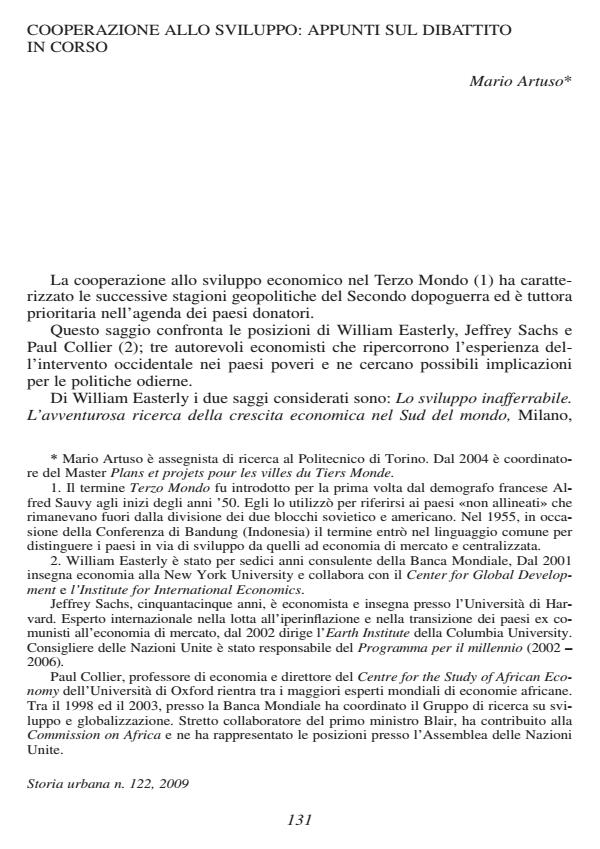Cooperazione allo sviluppo: appunti sul dibattito in corso
Titolo Rivista STORIA URBANA
Autori/Curatori Mario Artuso
Anno di pubblicazione 2009 Fascicolo 2009/122
Lingua Italiano Numero pagine 18 P. 131-148 Dimensione file 589 KB
DOI 10.3280/SU2009-122006
Il DOI è il codice a barre della proprietà intellettuale: per saperne di più
clicca qui
Qui sotto puoi vedere in anteprima la prima pagina di questo articolo.
Se questo articolo ti interessa, lo puoi acquistare (e scaricare in formato pdf) seguendo le facili indicazioni per acquistare il download credit. Acquista Download Credits per scaricare questo Articolo in formato PDF

FrancoAngeli è membro della Publishers International Linking Association, Inc (PILA), associazione indipendente e non profit per facilitare (attraverso i servizi tecnologici implementati da CrossRef.org) l’accesso degli studiosi ai contenuti digitali nelle pubblicazioni professionali e scientifiche.
Mario Artuso, Cooperation for Development: Contrasting Opinions - This paper addresses recent scholarly studies that review the experiences of Western intervention into poor countries and that use the implications of these experiences in order to confront present-day policies. I examine the publications of the three authoritative economists William Easterly, Jeffrey Sachs and Paul Collier. Easterly is very critical of international interventions and maintains that they have never produced and will never produce realistic results because of the way they are conceived. Easterly faults aid programs most of all because the ways they use to distribute the aid are largely insensitive to local conditions. In contrast, Sachs is much more optimistic. He maintains that present-day technology provides what is needed for eliminating poverty in the poorer countries. The only condition is that the investments should be large enough and long-term enough to get realistic initiatives for modernization going. Collier’s position is different from those of Easterly and Sachs in one respect. Even if Collier concedes that foreign aid plays an important role, he holds that this alone is not enough to win the battle against poverty in the poorest countries of the world. In fact, aid should be tied in with initiatives that promote public security, that produce international charters setting up the monitoring of institutional reforms, and that make local commerce easier to conduct. In its conclusion this paper compares and contrasts these various positions and points out the attention that they have attracted in international public opinion.
Mario Artuso, Cooperazione allo sviluppo: appunti sul dibattito in corso in "STORIA URBANA " 122/2009, pp 131-148, DOI: 10.3280/SU2009-122006